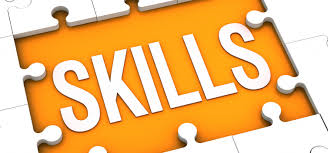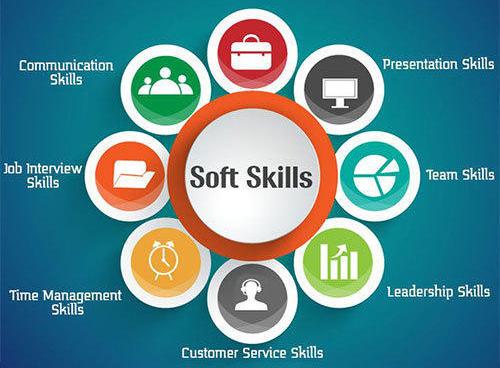|
"The new economy favors people
with qualities like self-motivation, initiative, flexibility, ability to work
with a team, and the capacity to learn and adapt to change."
-LAURENCE BOLDT
JOB PERFORMANCE
What skills do employers value? What attitudes, traits and characteristics would
most employers like their employees to have?
Transferrable Skills
Mistakes I Made at My
First Job
College Habits That Don't
Fly in the Workplace
Career Success: Tips to Excel in Your Career
Tactics for Getting Ahead at Work
Guide to
Getting a Promotion
What Do Employers
Really Want?
Competence - Ability to do the job well
Initiative - Working without constant direction or supervision
Dependability - Being there when needed
Reliability - Getting the job done
Efficiency - Being accurate and capable
Loyalty - Being trustworthy and honest
Maturity - Behaving as an adult, being stable and even-tempered, and maintaining
composure
Communication - Ability to express oneself clearly and concisely through
speaking and writing
Problem-Solving - Ability to address issues, generate options, settle
uncertainties, make decisions
Cheerfulness - Being pleasant, optimistic and agreeable
Helpfulness - Willing to pitch in, serve or assist with a sense of urgency
Teamwork - Working together with others, being cooperative and unselfish
Perseverance - Determination and patience in carrying on with a tedious project
Responsibility - Taking care of duties, being accountable
Creativity - Being original, resourceful, imaginative, innovative
Enthusiasm - Being energetic, positive, self-motivated about work
Adaptability - Ability to adjust to new situations, being flexible

Skills
Today's Employers Value Most
How Successful People
Think
What Skills Lead to
Success
Showing Professionalism in the Workplace
Habits of Employees That Get Promoted
How Prepared are Today's
College Graduates?
Millennials in the Workplace
JOB GROWTH
Professional development... getting ahead in your job... improving your
skills... enhancing your job performance... making yourself more valuable to
your organization... expanding your opportunities...
What are some ways you can contribute to your job growth? Here are some
suggestions...
Be aware of changes and new developments in the organization. Document your
accomplishments. Take some risks. Take on additional responsibilities and
assignments. Think like a manager. Adopt a business perspective. Continue your
learning, training and education. Cross train. Find a mentor. Continue to build
a network of professional contacts. Be open to criticism and suggestions. Be
positive, cooperative and supportive in your interactions with co-workers,
colleagues and clients. Stay updated by reading professional literature and
attending conferences. Stay active in your professional and community
associations.
Also, ask yourself... Am I punctual? productive? focused? cost-conscious?
cooperative? results-oriented? Do I save the company money? offer solutions to
problems? take pride in my work? set goals? see value in what I'm doing? manage
conflict in a mature and timely manner? refuse to be involved in office politics
and company gossip?
Top Skills Employers Want in Today's Graduates
Skills for the Future
Workforce
Strengthening Your Soft
Skills
Keep Your Career Moving
Shocking Statistics: Millennial Challenges
Confused
Millennial: Entering the Workforce

PRACTICAL ABILITIES
What intellectual and practical abilities are desired by employers?
According to Hart Research Associates, employers identified the following
traits:
Ability to communicate effectively, orally and in writing (89%)
Critical thinking and analytical reasoning skills (81%)
Ability to analyze and solve complex problems (75%)
Teamwork skills and the ability to collaborate with others in diverse
group settings (71%)
Ability to innovate and be creative (70%)
Ability to locate, organize, and evaluate information from multiple
sources (68%)
Ability to work with numbers and understand statistics (63%)
(Source: Raising the Bar: Employers’ Views on College Learning in the Wake
of the Economic Turndown)

|

|
Career
Planning
Career
Exploration
Job Market
Strategies
WORKPLACE
COMPETENCIES
The changing workplace demands a change in the skills workers will now
need to develop. A new set of expectations are now associated with the new
world of work... Learning skills... Writing and speaking skills…
Computation skills, Cognitive reasoning skills... Interpersonal skills...
Critical thinking and problem solving skills... Leadership skills…
Computer and technical skills. Also, the demands of the new workplace will
require a greater multicultural understanding and competency in working
with diverse populations.
Transferrable Skills
Mistakes I Made at
My First Job
College Habits That
Don't Fly in the Workplace
Career Success: Tips to Excel in Your Career
Tactics for Getting Ahead at Work
Guide to Getting a Promotion
What Do
Employers Really Want?

EMPLOYER FEEDBACK
When asked to rate what is most important in the traits possessed by
candidates applying for professional positions, one typical employer
provided this feedback. On a scale of 1 to 10, the following items were
evaluated:
10 Work Ethic
8 Ability to Learn
8 Maturity
7 Communication Skills
6 Skills and Knowledge
5 Grades
POOR PERFORMANCE
Sometimes your progress and satisfaction are impeded by factors that are
not within your control. These external blocks result from office
politics, organizational inconsistencies, the firm’s financial
constraints, layoffs, mergers, and other corporate activity outside of
your control.
Otherwise, your progress and satisfaction are oftentimes impeded by
factors that are completely within your control. These internal blocks
originate from your own attitudes and actions. These examples of poor
performance might lead to job stagnation, limited opportunities or
termination.
Examples include excessive absences, frequently coming to work late. too
much attention to outside interests and concerns, lack of initiative,
disloyalty and dishonesty, irresponsibility, being negative and causing
trouble, not being adaptable, carelessness, unwillingness to follow rules
and laziness.

Top Ten Employability Skills
Real World Tips for College Grads
Get Noticed and Get Ahead
Welcome to the Real World
How to Get a Promotion at Work
New Grad to New Job
SKILLSET TRENDS
New labor
market research has analyzed over 700 keywords from the job specifications
of 30 common workplace roles (across three popular job sites), to reveal
exactly what employers are looking for from candidates. The research
highlights the crossover in skills and requirements across roles and
industries, helping encourage those considering a career move, or just
starting out in the job market by showing how qualified they may already
be for a new aspirational career.
The top skills sought by employers are:
Communication skills (90 percent)
Relationship building (83 percent)
Organizational skills (63 percent)
Work well under pressure
(63 percent)
Results driven (60 percent)
Time management (57 percent)
Team player (50 percent)
Analytical skills (47 percent)
Attention to detail (47
percent)
People skills (47
percent)
Self-motivated (47
percent)
Management skills (43 percent)
Leadership skills (43
percent)
Computer skills (40 percent)
Negotiating skills (40
percent)
Problem solving (37 percent)
Which Skills Do Employers Value Most
Reality of the Real World
Mindset of High
Achievers
Rules to Follow to Get Ahead in Your Career
Fastest Ways to Get Ahead in Your Career
Professional
Behavior at Work

|